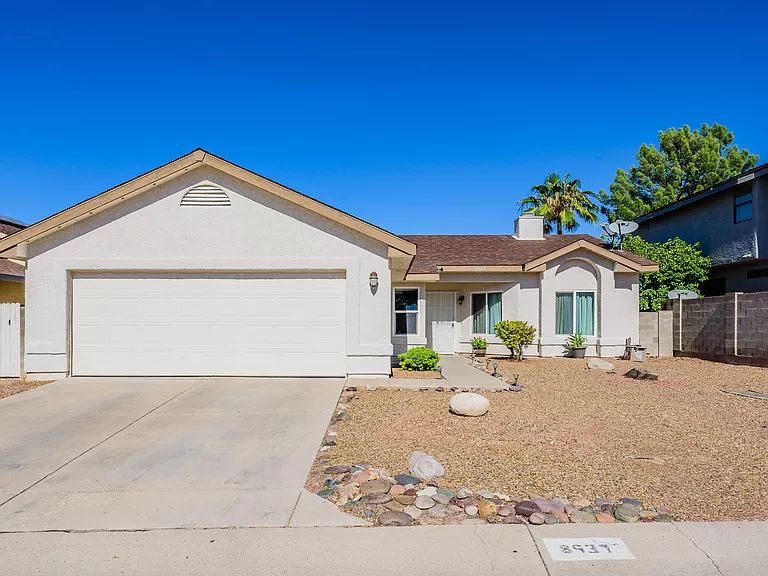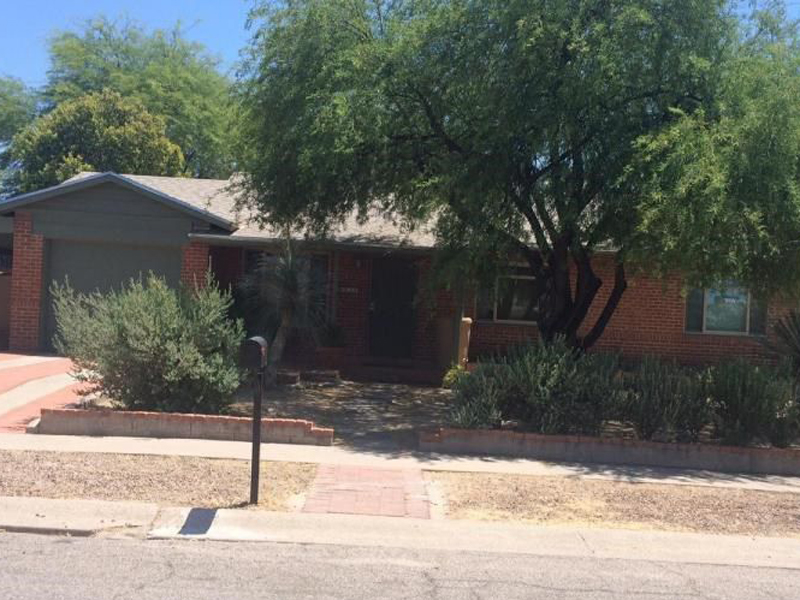Is Your Garage Door Stuck? Right here's What to Do Initial
When your garage door won't open, start with these necessary safety checks prior to trying any type of repair services. Initially, ensure no one is standing near the door which vehicles are clear of the opening. Search for apparent indicators of damages like damaged panels, bent tracks, or hanging cable televisions. If you see a snapped spring or significantly harmed elements, quit quickly and call an expert—-- these repair services require specific tools and expertise to manage securely.

Examine These 6 Things Prior To Calling a Specialist
Prior to thinking you need pricey repair services, go through this fast analysis list that resolves most garage door issues:
-
Power source: Verify the opener is plugged in and the outlet is functioning
-
Remote batteries: Replace dead batteries in your remote control
-
Hand-operated lock: Examine if someone unintentionally engaged the manual lock
-
Blockages: Look for debris obstructing the door's path or sensing units
-
Emergency launch: Ensure the red emergency situation cable hasn't been drawn
-
Circuit breaker: Validate the garage circuit hasn't stumbled
These basic checks deal with approximately 70% of garage door issues without calling for expert treatment.
10 Typical Reasons Your Garage Door Will Not Open Up
Comprehending why your garage door opener isn't working helps you pick the ideal service. Below are one of the most frequent reasons house owners experience:
Dead remote batteries stand for the easiest solution—-- when batteries die, the remote can't send signals to the opener. Power blackouts or tripped breakers reduced power to the motor. Damaged springs avoid the door from raising appropriately and call for instant expert attention. Sensor imbalance reasons safety systems to block door procedure. Track obstructions stop rollers from relocating smoothly. Motor overload triggers automatic shutoffs when the opener finds resistance. Limit switch problems puzzle the opener about door placement. Cord damages interrupts the lifting mechanism. Weather-related concerns affect door motion throughout extreme temperature levels. Part wear from age progressively minimizes system efficiency.
Issue # 1: Dead Remote Batteries
When your wall surface switch functions yet your remote doesn't, dead batteries are typically the culprit. Many garage door remotes use either 3-volt lithium or 12-volt alkaline batteries. Eliminate the back cover of your remote and inspect the battery kind. Replace with fresh batteries and examine the remote. If it still doesn't work, you might need to reprogram it to your opener. Consult your opener's guidebook for certain reprogramming instructions, as the procedure differs by supplier.
Problem # 2: Power Supply Issues
Garage door power troubles frequently come from loosened connections or tripped circuits. Inspect that the opener is strongly connected into its electrical outlet—-- vibration can loosen up connections over time. Examine the outlet with an additional tool to confirm it's working. Analyze your home's breaker box for stumbled circuits, especially if you have actually experienced storms or power variations. GFCI outlets may have tripped and need resetting. If the opener has power yet will not respond, what causes garage door cables to snap the concern most likely lies somewhere else in the system.
Problem # 3: Broken or Damaged Springs
Broken garage door springtimes are among one of the most dangerous elements to deal with. If you listen to a loud bang from your garage or discover the door really feels exceptionally hefty when trying to lift manually, a spring has actually most likely snapped. Torsion springs run horizontally above the door, while expansion springs rest on either side. Never attempt spring repair work on your own—-- these elements store significant tension that can cause severe injury or death. Expert substitute typically sets you back $150-$300 but guarantees your safety.
Issue # 4: Obstructed Safety Sensing Units
Modern garage doors include safety and security sensing units that protect against closure when things are detected. These sensing units can stop the door from opening if they're dirty, misaligned, or obstructed by debris. Clean sensing unit lenses with a soft fabric and make sure nothing blocks the unseen beam of light between them. Check that sensing units are correctly lined up—-- the majority of have indicator lights that reveal link condition. Sensing unit problems frequently resolve with straightforward cleaning and change.
Trouble # 5: Track Obstructions or Damages
Garage door tracks overview rollers as the door moves up and down. Dirt, particles, old oil, or small things can jam the system. Check tracks visually and remove any type of blockages with a brush or towel. Seek dents, flexes, or bending that might impede smooth procedure. Minor track adjustments are feasible for convenient property owners, but significant damages calls for professional repair work to stop more problems or security threats.
Issue # 6: Garage Door Opener Electric Motor Issues
When the garage door electric motor runs yet the door does not move, several problems could be liable. The motor may be overloaded and shutting off as a safety measure. Gear wear, particularly in older units, can avoid proper operation. Chain or belt drive problems impact power transmission. If you listen to uncommon grinding, clicking, or humming audios, quit using the opener immediately. Electric motor repairs commonly cost more than substitute, especially for units over 10 years old.
Step-by-Step DIY Troubleshooting Guide
Follow this organized strategy to garage door troubleshooting while focusing on safety and security throughout the procedure:
Action 1: Test the wall surface switch initially. If it functions yet the remote doesn't, concentrate on remote concerns. If neither works, inspect power supply.
Step 2: Check out the hands-on release cord. If it's been pulled, the opener is disengaged from the door. Press the trolley back to reconnect.
Step 3: Manually test the door by disengaging the opener and attempting to lift the door by hand. It must relocate efficiently and stay in area when half-open.
Tip 4: Evaluate noticeable parts for damages, paying special interest to springtimes, cables, and tracks.
Step 5: Examine all safety and security functions consisting of sensors, limit buttons, and auto-reverse features.
Step 6: Examination different controls (remote, wall button, keypad) to separate the problem source.
Constantly use shatterproof glass and job handwear covers when executing examinations, and never ever effort fixings on springs or high-tension elements.
When to Call an Expert vs. do it yourself Solutions

Recognizing when to call a garage door expert versus trying DIY repair work protects both your safety and your purse. Manage these issues on your own: dead remote batteries, power supply troubles, small track cleaning, sensing unit cleaning and positioning, and basic lubrication.
Never try these repair work on your own: spring replacement or modification, cable repair work, significant track adjustment, electrical circuitry issues, opener motor replacement, or any kind of repair entailing high-tension parts. Expert specialists have actually specialized devices, training, and insurance policy to handle unsafe repairs safely.
Consider fixing prices versus replacement prices, especially for doors over 15 years of ages. Modern garage doors offer much better safety and security attributes, power performance, and integrity than older versions.
Emergency Situation Garage Door Solutions
When you're stuck with a garage door that won't open and need instant access, adhere to these emergency situation procedures:
Manual Procedure: Draw the red emergency situation release cable to disengage the opener. This enables hands-on operation however requires appropriate technique to avoid injury. Lift the door gradually and equally, making use of leg muscle mass rather than your back. Most residential doors consider 100-150 pounds, making them workable for a lot of grownups.
Short-lived Fixes: If the door opens up by hand however won't stay up, prop it open with sawhorses or clamps—-- never utilize your body or automobiles as assistances. For doors that won't shut totally, make sure the opening is safeguarded if you must leave.
Emergency Solution: Numerous garage door companies use 24/7 emergency solution for scenarios involving safety issues, entraped automobiles, or complete system failures. While extra costly than regular service calls, emergency repair work supply instant remedies when needed most.
Safety Caution: What NOT to Do
Garage door security calls for recognizing hazardous repair services that need to never ever be attempted by homeowners:
Never ever attempt to fix springtimes—-- they save enough energy to create deadly injuries when they snap or are improperly managed. Do not force a stuck door—-- this can harm the opener, tracks, or door panels, developing more costly problems. Avoid bypassing safety functions—-- sensors and auto-reverse systems avoid severe injuries and property damage.
Do not ignore weird sounds—-- grinding, scuffing, or banging noises show troubles that aggravate over time. Never ever make use of the door if wires are torn or damaged—-- the door might drop all of a sudden. Don't try electric repair work unless you're a certified electrical expert—-- garage door openers use both 120V home present and low-voltage control circuits.

Preventive Upkeep to Avoid Future Problems
Normal garage door maintenance avoids most common troubles and prolongs system life expectancy significantly:
Month-to-month Jobs: Aesthetic evaluation of all components, testing auto-reverse security functions, examining and tightening hardware, and cleaning tracks and sensing units.
Quarterly Jobs: Lubricating all relocating get rid of ideal garage door lube, screening manual operation, and checking weather condition securing.
Annual Jobs: Expert inspection and tune-up, springtime change if needed, and opener maintenance consisting of belt or chain adjustment.
Seasonal Tasks: Planning for weather extremes, inspecting insulation, and changing opener setups for temperature adjustments.
Consistent upkeep costs far less than emergency situation repairs and makes sure trusted procedure year-round.
Garage Door Won't Open FAQs
Why won't my garage door open with the remote but deals with the wall surface button?
This typically indicates dead remote batteries, signal disturbance, or the need to reprogram the remote. Check batteries initially, after that consult your opener handbook for reprogramming instructions.
Can I by hand open my garage door if the power is out?
Yes, pull the red emergency launch cord to disengage the opener, after that raise the door by hand. Be prepared for the door's complete weight and lift with correct method to avoid injury.
Just how do I know if my garage door spring is damaged?
Indicators consist of a loud bang from the garage, the door sensation very heavy when lifting by hand, noticeable voids in the springtime coils, or the door just opening up a couple of inches before quiting.
Is it risk-free to utilize my garage door if it will not open all the way?
No, partial operation shows mechanical troubles that might aggravate all of a sudden. Stop utilizing the door and have it checked by an expert to avoid further damages or injury.
What should I do if my garage door opens but won't shut?
Check security sensors for blockages or imbalance, take a look at the tracks for debris, and examine the auto-reverse feature. If these don't fix the problem, seek advice from a professional.
How much does it set you back to repair a garage door that will not open up?
Costs vary extensively depending on the issue: battery replacement ($5-$10), expert diagnosis ($50-$100), spring substitute ($150-$300), or opener substitute ($200-$500).
Can weather impact my garage door's capacity to open?
Yes, severe cold can enlarge lubricating substances and affect metal parts, while warm can create expansion issues. Many problems deal with as temperature levels stabilize, however consistent issues may need professional focus.
Why does my garage door open a few inches then stop?
This typically suggests broken springtimes, limit switch issues, or track obstructions. The opener's safety features quit operation when resistance is spotted, protecting against damages to the motor or door.
Get Professional Assist for Complex Problems
When do it yourself troubleshooting does not resolve your garage door troubles, specialist specialists supply the proficiency and devices needed for secure, long-term fixings. Certified professionals diagnose problems accurately, utilize manufacturer-approved components, and supply warranties on their work.
Expert services consist of: thorough system inspections, springtime and wire substitute, opener repair work and replacement, track placement and substitute, electric troubleshooting, and emergency situation service telephone calls.
What to expect: in advance prices, qualified and insured service technicians, same-day solution for lots of repair work, and follow-up maintenance suggestions.
Many garage door firms use cost-free quotes for major fixings and can supply immediate remedies for urgent issues impacting home protection or car gain access to.
Getting Your Garage Door Working Again
A garage door that won't open doesn't have to wreck your day or damage your budget. Beginning with straightforward troubleshooting steps like examining power, replacing batteries, and taking a look at for obvious blockages. Lots of troubles have quick DIY solutions that restore typical operation within minutes.
Nevertheless, identify when specialist aid is necessary—-- particularly for spring-related problems, electric problems, or complex mechanical failings. Attempting hazardous repairs on your own risks major injury and typically produces much more pricey problems.
Routine upkeep protects against most garage door problems and ensures reliable procedure for years to find. When issues do happen, address them immediately to prevent even more costly repair work and maintain your home's safety and security and benefit. Whether you require a simple battery replacement or complete system overhaul, remedies exist to obtain your garage door working smoothly again.